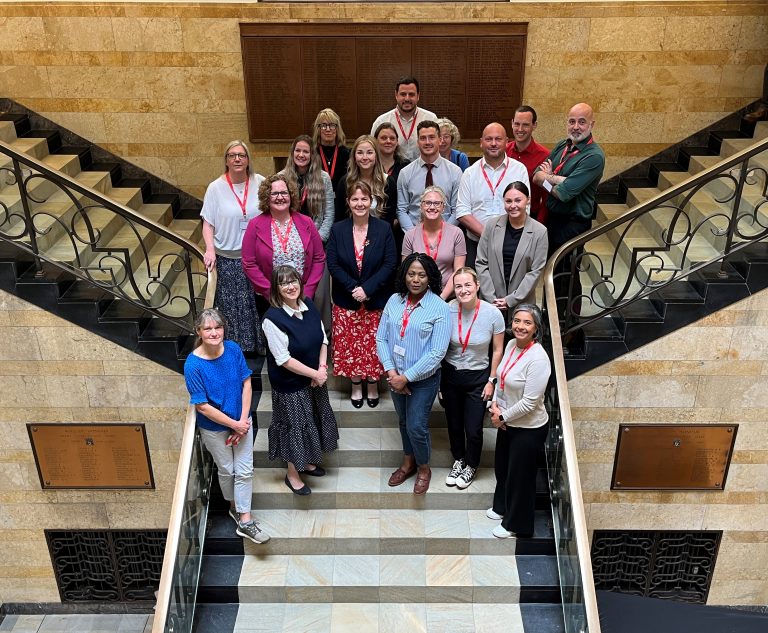Managing a fleet efficiently is crucial for any business reliant on transportation. However, achieving this in a way that is both sustainable and inclusive can present unique challenges. Here are some practical strategies to help your business navigate these challenges and achieve a fleet that is not only efficient but also environmentally friendly and accessible to all.
Embrace Green Technology
One of the most impactful steps towards sustainable fleet management is the adoption of green technology. This can include electric vehicles (EVs) or hybrid models that significantly reduce carbon emissions. While the initial investment might be higher, the long-term savings on fuel and maintenance costs are considerable. Moreover, as regulations around emissions tighten, having a green fleet can future-proof your business and ensure compliance with environmental standards.
Installing charging stations at your business premises is another step towards sustainability. Partnering with local authorities to access public charging infrastructure can also be beneficial. Incentives and grants are often available for businesses transitioning to electric vehicles, so take advantage of these opportunities to offset costs.
Regular Maintenance and Monitoring
Maintaining your fleet in top condition is essential for both sustainability and efficiency. Regular maintenance checks ensure that vehicles run smoothly and efficiently, reducing fuel consumption and emissions. Implementing a robust monitoring system can help track vehicle performance and identify any issues early on.
Telematics systems can provide valuable data on driving habits, fuel consumption, and maintenance needs. This data allows for proactive maintenance, reducing downtime and extending the lifespan of your vehicles. Additionally, encouraging eco-friendly driving habits among your drivers, such as smooth acceleration and braking, can further enhance fuel efficiency.
Prioritise Accessibility
Inclusivity is another critical aspect of modern fleet management. Ensuring that your fleet includes vehicles that can accommodate passengers with disabilities not only broadens your customer base but also demonstrates a commitment to social responsibility. Reputable, long-established companies like Cab Direct offer
wheelchair-accessible taxis, which can be a valuable addition to your fleet.
Having a mix of vehicles that cater to various needs ensures that you can provide services to a wider audience. This inclusivity can enhance your reputation and open up new business opportunities. Additionally, being known as a company that prioritises accessibility can build customer loyalty and trust.
Invest in Training and Development
Your drivers play a crucial role in the sustainability and efficiency of your fleet. Investing in regular training programs can ensure they are equipped with the knowledge and skills to operate vehicles efficiently. Training should cover eco-driving techniques, safety practices, and the proper use of any new technologies or vehicles introduced to the fleet.
Moreover, fostering a culture of continuous improvement and encouraging feedback from your drivers can lead to innovative ideas for further enhancing fleet efficiency and sustainability. Recognising and rewarding good practices can also motivate drivers to maintain high standards.
Efficient Route Planning
Efficient route planning can significantly reduce fuel consumption and emissions.
Using route optimisation software can help identify the most efficient routes, taking into account factors such as traffic, road conditions, and delivery schedules. This not only saves time and fuel but also improves service delivery and customer satisfaction.
Real-time tracking and dynamic routing can further enhance efficiency. By responding to traffic changes or urgent delivery requests promptly, you can ensure that your fleet operates at maximum efficiency at all times.
Adopt a Circular Economy Approach
Adopting a circular economy approach in fleet management involves considering the entire lifecycle of your vehicles. This means planning for the reuse, refurbishment, or recycling of vehicles and their components at the end of their service life. Partnering with companies that offer vehicle recycling services can ensure that your old vehicles are disposed of in an environmentally friendly manner.
Furthermore, exploring options for using remanufactured parts for vehicle repairs can reduce costs and environmental impact. This approach not only supports sustainability but also promotes resource efficiency.
Engage with Stakeholders
Engaging with stakeholders, including employees, customers, and suppliers, is vital for successful sustainable and inclusive fleet management. Regular communication and collaboration can help identify areas for improvement and ensure that everyone is on board with your sustainability goals.
Customer feedback can provide insights into how your services are perceived and where there might be opportunities to enhance inclusivity or efficiency. Working closely with suppliers can also lead to better deals on green technology and maintenance services.
Measure and Report Progress
Finally, measuring and reporting your progress is crucial for continuous improvement. Set clear sustainability and inclusivity targets for your fleet and regularly review your performance against these goals. Transparency in reporting can build trust with stakeholders and demonstrate your commitment to these values.
Using performance indicators such as fuel consumption, emissions, maintenance costs, and customer satisfaction can provide a comprehensive view of your fleet’s performance. Regularly sharing these results with your team and stakeholders ensures accountability and helps drive ongoing improvements.
Achieving sustainable and inclusive fleet management requires a multifaceted approach that incorporates green technology, efficient practices, and a commitment to accessibility. By embracing these strategies, your business can enhance its operational efficiency, reduce environmental impact, and provide inclusive services to a broader customer base.
Investing in sustainability and inclusivity is not only beneficial for the environment and society but also positions your business as a leader in responsible and forward-thinking practices.
























